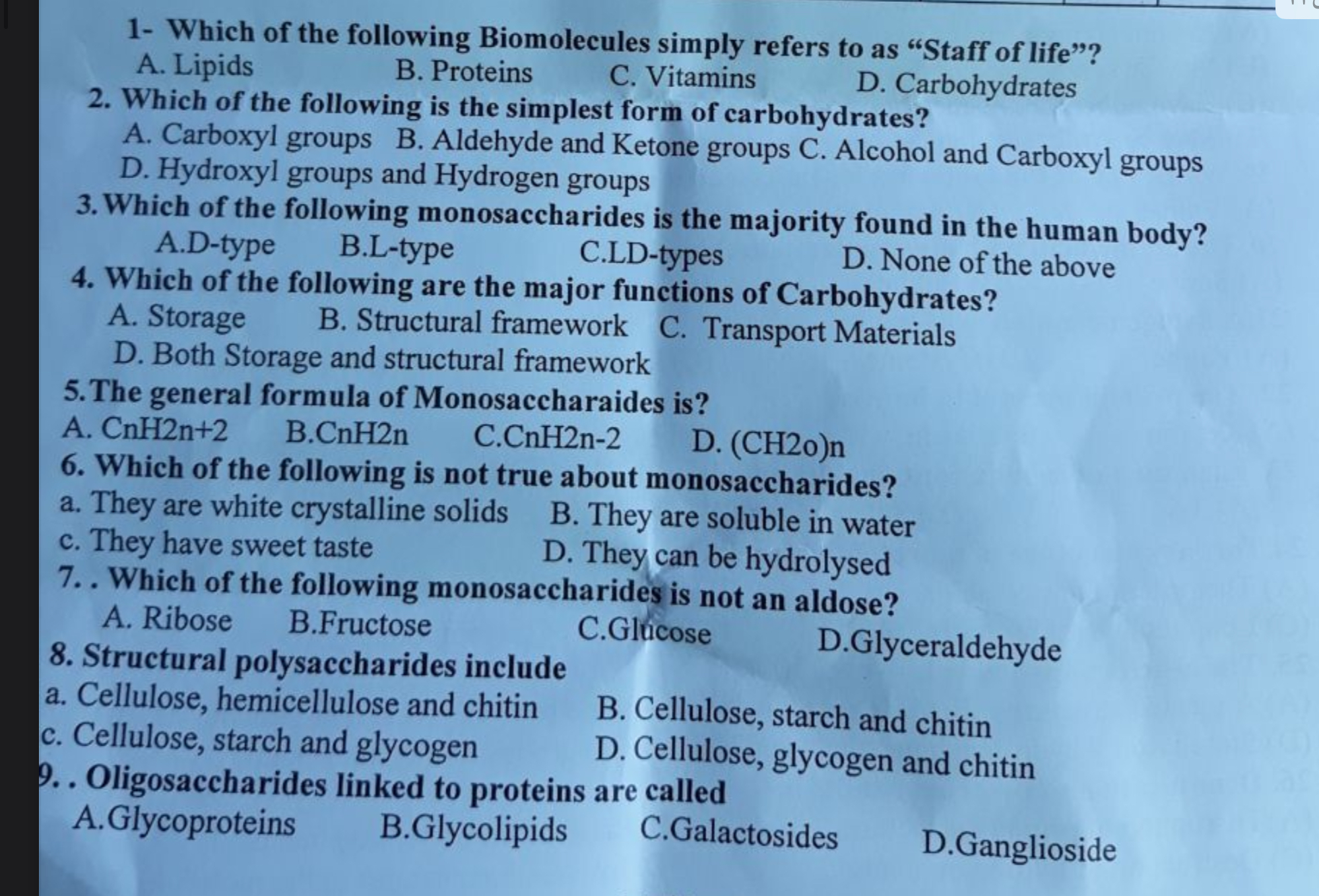Which of the following Biomolecules simply refers to as 'Staff of life'? Which of the following is the simplest form of carbohydrates? Which of the following monosaccharides is the... Which of the following Biomolecules simply refers to as 'Staff of life'? Which of the following is the simplest form of carbohydrates? Which of the following monosaccharides is the majority found in the human body? Which of the following are the major functions of Carbohydrates? The general formula of Monosaccharides is? Which of the following is not true about monosaccharides? Which of the following monosaccharides is not an aldose? Structural polysaccharides include? Oligosaccharides linked to proteins are called?

Understand the Problem
The questions ask about various aspects of biomolecules, specifically carbohydrates and their characteristics, structures, and functions. This includes identifying types of carbohydrates, their formulas, and their properties.
Answer
1: Carbohydrates, 2: Aldehyde and Ketone, 3: D-type, 4: D, 5: (CH2O)n, 6: D, 7: Fructose, 8: A, 9: Glycoproteins
1: Carbohydrates; 2: Aldehyde and Ketone groups; 3: D-type; 4: Both Storage and structural framework; 5: (CH2O)n; 6: They can be hydrolysed; 7: Fructose; 8: Cellulose, hemicellulose and chitin; 9: Glycoproteins
Answer for screen readers
1: Carbohydrates; 2: Aldehyde and Ketone groups; 3: D-type; 4: Both Storage and structural framework; 5: (CH2O)n; 6: They can be hydrolysed; 7: Fructose; 8: Cellulose, hemicellulose and chitin; 9: Glycoproteins
More Information
Carbohydrates are crucial energy sources and structural components in living beings. Aldehyde and ketone groups form the backbone of monosaccharides, and the D-type form of monosaccharides, especially glucose, is predominant in humans. Oligosaccharides linked to proteins are important for cell recognition.
Tips
Avoid confusing the type of sugar (D-type vs L-type) and remembering that hydrolysis involves breaking down substances, not applicable to monosaccharides.
Sources
- [PDF] 1) Which of the following Biomolecules simply refers to as “Staff of ... - lscollege.ac.in
- Solved a Which of the following Biomolecules simply refers - Chegg - chegg.com
- MCQs On Carbohydrates - BYJU'S - byjus.com
AI-generated content may contain errors. Please verify critical information